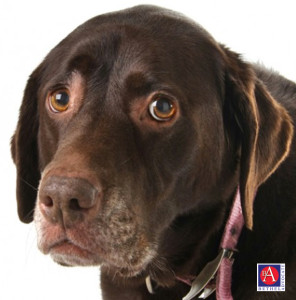
Report by Paula Antolini
July 2, 2017 8:19AM EDT
Fourth of July Pet Safety Tips; People Foods to Avoid Feeding Pets
Pet Safety Tips from the ASPCA:
It is that time of year when many people have backyard barbecue parties in celebration of holidays or other happy events, or celebrate by going to view fireworks displays, but please keep in mind that many hazards exist for pets. Some things can be used to try to calm dogs down in events like this, such as CBD products (perhaps look into the best cbd for dogs), but dogs still should be kept out of harm’s way. Some festive foods and activities can be potentially dangerous to them. In fact there are many things that can become potentially life threatening to them. This is why it is also important to mention that it is vital to invest in pet insurance for your pets especially if they are dogs or cats who can escape and harm themselves. The fright of the fireworks can make animals do some pretty self destructive things, nail biting is a common sign of stress. It is always better to be safe than sorry if your pet gets rushed to the vets with a hefty vet bill that you can’t afford. So keep reading because The ASPCA Animal Poison Control Center offers the following tips:
Never leave alcoholic drinks unattended where pets can reach them. Alcoholic beverages have the potential to poison pets. If ingested, the animal could become very intoxicated and weak, severely depressed or could go into a coma. Death from respiratory failure is also a possibility in severe cases.
Do not apply any sunscreen or insect repellent product to your pet that is not labeled specifically for use on animals. Ingestion of sunscreen products can result in drooling, vomiting, diarrhea, excessive thirst and lethargy. The misuse of insect repellent that contains DEET can lead to neurological problems.
Make sure they have shade and don’t overheat. If you find the July sun too hot then imagine how your dog feels with so much hair on them! So, you need to make sure they always have shade throughout the day and access to clean water. You should also make sure they’re well groomed to reduce the chances of them overheating — Click here to find a reliable dog groomer.
Always keep matches and lighter fluid out of your pets’ reach. Certain types of matches contain chlorates, which could potentially damage blood cells and result in difficulty breathing-or even kidney disease in severe cases. Lighter fluid can be irritating to skin, and if ingested can produce gastrointestinal irritation and central nervous system depression. If lighter fluid is inhaled, aspiration pneumonia and breathing problems could develop.
Keep your pets on their normal diet. Any change, even for one meal, can give your pet severe indigestion and diarrhea. This is particularly true for older animals who have more delicate digestive systems and nutritional requirements. And keep in mind that foods such as onions, chocolate, coffee, avocado, grapes, raisins, salt and yeast dough can all be potentially toxic to companion animals. Please visit our People Foods to Avoid Feeding Your Pets page for more information.
Do not put glow jewelry on your pets, or allow them to play with it. While the luminescent substance contained in these products is not highly toxic, excessive drooling and gastrointestinal irritation could still result from ingestions, and intestinal blockage could occur from swallowing large pieces of the plastic containers.
Keep citronella candles, insect coils and tiki torch oil products out of reach. Ingestion can produce stomach irritation and possibly even central nervous system depression. If inhaled, the oils could cause aspiration pneumonia in pets.
Never use fireworks around pets! While exposure to lit fireworks can potentially result in severe burns and/or trauma to the face and paws of curious pets, even unused fireworks can pose a danger. Many types contain potentially toxic substances, including potassium nitrate, arsenic and other heavy metals.
Loud, crowded fireworks displays are no fun for pets, who can become frightened or disoriented by the sound. Please resist the urge to take them to Independence Day festivities, and opt instead to keep them safe from the noise in a quiet, sheltered and escape-proof area at home. It might even be worth looking into pet friendly CBD products from places like www.justcbdstore.com – they will help calm your pets and reduce the stress caused for them. Let’s face it you can do everything possible to protect them from the noise, but houses all around you will likely be letting off fireworks.
Be prepared in the event that your pet does escape by downloading the ASPCA Mobile App. You’ll receive a personalized missing pet recovery kit, including step-by-step instructions on how to search for a lost animal in a variety of circumstances.And keep your pets’ IDs up to date! It’s a good idea for all your animal companions-even indoor-only pets-to always wear a collar with an ID tag that includes your name, current phone number and any relevant contact information. July 1 is National ID Your Pet Day, which serves as an annual check-in to make sure your pets’ identification tags and microchip information is up to date.
*****
The ASPCA Pet Safety Tips: People Foods to Avoid Feeding to Your Pet
ASPCA Animal Poison Control Center Phone Number: (888) 426-4435
Our Animal Poison Control Center experts have put together a handy list of the top toxic people foods to avoid feeding your pet. As always, if you suspect your pet has eaten any of the following foods, please note the amount ingested and contact your veterinarian or the ASPCA Animal Poison Control Center at (888) 426-4435.
Alcohol
Alcoholic beverages and food products containing alcohol can cause vomiting, diarrhea, decreased coordination, central nervous system depression, difficulty breathing, tremors, abnormal blood acidity, coma and even death. Under no circumstances should your pet be given any alcohol. If you suspect that your pet has ingested alcohol, contact your veterinarian or the ASPCA Animal Poison Control Center immediately.
Avocado
Avocado is primarily a problem for birds, rabbits, donkeys, horses, and ruminants including sheep and goats. The biggest concern is for cardiovascular damage and death in birds. Horses, donkeys and ruminants frequently get swollen, edematous head and neck.
Chocolate, Coffee and Caffeine
These products all contain substances called methylxanthines, which are found in cacao seeds, the fruit of the plant used to make coffee, and in the nuts of an extract used in some sodas. When ingested by pets, methylxanthines can cause vomiting and diarrhea, panting, excessive thirst and urination, hyperactivity, abnormal heart rhythm, tremors, seizures and even death. Note that darker chocolate is more dangerous than milk chocolate. White chocolate has the lowest level of methylxanthines, while baking chocolate contains the highest.
Citrus
The stems, leaves, peels, fruit and seeds of citrus plants contain varying amounts of citric acid, essential oils that can cause irritation and possibly even central nervous system depression if ingested in significant amounts. Small doses, such as eating the fruit, are not likely to present problems beyond minor stomach upset.
Coconut and Coconut Oil
When ingested in small amounts, coconut and coconut-based products are not likely to cause serious harm to your pet. The flesh and milk of fresh coconuts do contain oils that may cause stomach upset, loose stools or diarrhea. Because of this, we encourage you to use caution when offering your pets these foods. Coconut water is high in potassium and should not be given to your pet.
Grapes and Raisins
Although the toxic substance within grapes and raisins is unknown, these fruits can cause kidney failure. Until more information is known about the toxic substance, it is best to avoid feeding grapes and raisins to dogs.
Macadamia Nuts
Macadamia nuts can cause weakness, depression, vomiting, tremors and hyperthermia in dogs. Signs usually appear within 12 hours of ingestion and can last approximately 12 to 48 hours.
Milk and Dairy
Because pets do not possess significant amounts of lactase (the enzyme that breaks down lactose in milk), milk and other dairy-based products cause them diarrhea or other digestive upset.
Nuts
Nuts, including almonds, pecans, and walnuts, contain high amounts of oils and fats. The fats can cause vomiting and diarrhea, and potentially pancreatitis in pets.
Onions, Garlic, Chives
These vegetables and herbs can cause gastrointestinal irritation and could lead to red blood cell damage. Although cats are more susceptible, dogs are also at risk if a large enough amount is consumed. Toxicity is normally diagnosed through history, clinical signs and microscopic confirmation of Heinz bodies.
Raw/Undercooked Meat, Eggs and Bones
Raw meat and raw eggs can contain bacteria such as Salmonella and E. coli that can be harmful to pets and humans. Raw eggs contain an enzyme called avidin that decreases the absorption of biotin (a B vitamin), which can lead to skin and coat problems. Feeding your pet raw bones may seem like a natural and healthy option that might occur if your pet lived in the wild. However, this can be very dangerous for a domestic pet, who might choke on bones, or sustain a grave injury should the bone splinter and become lodged in or puncture your pet’s digestive tract.
Salt and Salty Snack Foods
Large amounts of salt can produce excessive thirst and urination, or even sodium ion poisoning in pets. Signs that your pet may have eaten too many salty foods include vomiting, diarrhea, depression, tremors, elevated body temperature, seizures and even death. As such, we encourage you to avoid feeding salt-heavy snacks like potato chips, pretzels, and salted popcorn to your pets.
Xylitol
Xylitol is used as a sweetener in many products, including gum, candy, baked goods and toothpaste. It can cause insulin release in most species, which can lead to liver failure. The increase in insulin leads to hypoglycemia (lowered sugar levels). Initial signs of toxicosis include vomiting, lethargy and loss of coordination. Signs can progress to seizures. Elevated liver enzymes and liver failure can be seen within a few days.
Yeast Dough
Yeast dough can rise and cause gas to accumulate in your pet’s digestive system. This can be painful and can cause the stomach to bloat, and potentially twist, becoming a life threatening emergency. The yeast produce ethanol as a by-product and a dog ingesting raw bread dough can become drunk (See alcohol).
###


Leave a Reply